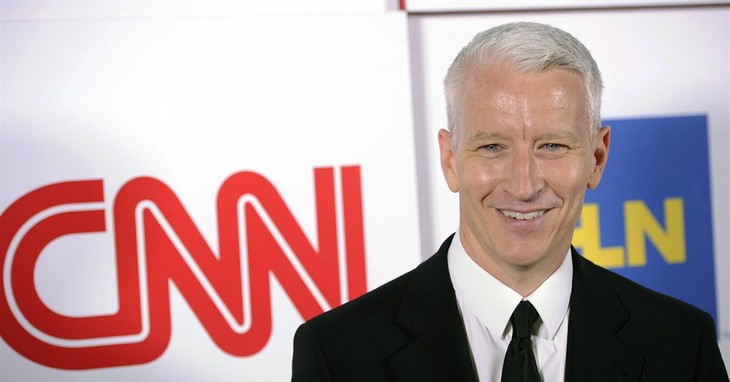One would think with so many news outlets drooling over the Fox legal tussle that another prominent case involving CNN would be of interest.
For weeks now, it has been a steady stream of blaring headlines concerning the Fox News defamation case brought by Dominion Voting Systems. Interrupted briefly by the hysteria surrounding the will-he-be-cuffed/won’t-he-be-cuffed Donald Trump legal melodrama, the Fox-Dominion suit has the collective media in a spate of giddiness, despite the unlikely hoped-for resolution.
Yet, another lawsuit of a similar nature concerning a major news network is not getting a whisp of the same attention. CNN is readying for a court case in the coming weeks where it has been sued for defamation by a Florida doctor over a story the network ran in 2015 about the amount of infant mortality at St. Mary’s Hospital, in West Palm Beach Florida. The story surrounded the supposedly high number of cases where infants died in its heart surgery program.
The suit alleges that CNN relied on flawed data measurements to come up with the claim of elevated levels of infant deaths due to these surgeries, compared with national averages. The CNN report led to the hospital CEO quitting, the closure of the pediatric cardiac surgery program, and now the network is being sued by Dr. Michael Black for malice and impacting his career and reputation.
Yet despite carrying a few elements similar to the currently touted lawsuit, few in the press are expressing interest or concern over the CNN case. Certainly not to any level approaching the Fox-Dominion suit. This all concerns the sharp animosity felt in media circles for the right-leaning network, and it leads to rather imbalanced thinking on the part of news outlets.
As Joe Cunningham covered earlier today, the cheerleading seen for a Dominion win is not in the best interest of the press in general. A court victory paving the way for future cases to be brought against news organizations on similar grounds is not a favorable result in any capacity, yet so many outlets are allowing their distaste for Fox to cloud better judgment. Meanwhile, CNN is facing a similar challenge, and the press wants to pretend that risk is not in play.

Internal elements of CNN journalism standards have become exposed much like the current trial details getting so much play these days. For one, Dr, Black has compelled the court to force CNN to turn over communications it had with its primary source for their report. This is normally something that in the past would have journalists shrieking over protecting sources. Not a sound has been heard of late on this matter. Then there is the revelation of CNN’s vetting process.
Due to a court clerical error, some of the machinations within CNN have been made public. Anderson Cooper had been called as a witness in this case — as the initial CNN report on the hospital took place on his show AC360 — his testimony leading to a document swelling to hundreds of pages regarding the editorial operations. This was to have been sealed testimony, however, it was mistakenly filed in the court docket that is accessed by the public. At the outlet Puck, Eriq Gardner obtained Cooper’s testimony and it sheds light on the fact-checking framework within CNN, as detailed by the writer.
“The network’s most adventurous journalism is reviewed rigorously prior to publication by a triumvirate of senior editors, Standards & Practices employees, and company attorneys.”
This three-tiered vetting structure is dubbed internally as “The Triad.” It would seem on the surface that this is an applause-worthy process inside the network, ensuring that reports are looked over by executives and legal, as well as editorially. But then it leads to questions by those of us outside of CNN as to how so much flawed reporting is seen on the network in recent years. Hunter Biden’s laptop, flawed Ivermectin reports, the false story of ICE agents whipping immigrants at the border, and other recent pitfalls come to mind.
It could be that the key term in this is “most adventurous journalism,” indicating that this Triad process would only apply to extensive stories with involved investigative journalism. But this laudable process could also lead to lax performances by the likes of Cooper. He testified that this fact-check oversight gave him a level of comfort in his reporting.
It gave him confidence in CNN’s journalism. So much confidence, in fact, that Cooper said he wouldn’t interfere or take liberties with reporting that had come to him pre-vetted. “My getting involved with [the review] will only gum up the works because so many eyes had looked at it,” he told Locke in January, adding on the second day of questioning that the system impacts how he interacts with those who appear on his show. “Normally, I would just ask the question that I’m interested in about something, and the reporter wouldn’t know in advance what I’m asking, and they would just answer it. The fact that there is an answer here [in this script,] I’m assuming that meant it had gone to the Triad process.”
Anderson Cooper seemed to grasp how this reflected on him as an on-air journalist, something alluded to in the court proceedings. He seemed bothered by “the implication that he’s just a pretty face,” and the anchor sought to brush away these assumptions. “I feel it makes it seem like I don’t do anything all day long and I’m just sitting around for the camera to turn on. I’m deeply involved, you know, all day long every day, in learning and research and stuff.”

But this testimony about the vetting has become another targeted aspect of the case for the plaintiffs. As Gardner explains, the legal team wants to get access to the internal fact-checking documents from the news report. Since part of that three-pronged fact-check involved CNN legal, the network is arguing this becomes privileged, and as such, it cannot be revealed. It leads to an interesting response.
Black’s lawyers in March [made] a push for access to Triad communications that the network has been insisting are shielded by attorney-client privilege. And if CNN won’t give up these sensitive conversations, Black’s team wants Judge Oftedal to prohibit CNN from pointing to the Triad as a demonstration of its care in vetting the hospital exposé. “This is a textbook use of attorney-client privilege as both a sword and shield,” Black’s lawyers argued.
This is all shaping up to be a compelling and possibly costly case, should it go to a jury and provide judgment against CNN. While part of the reason Fox-Dominion gets so much press is the $1.6 billion tag applied to the case, Gardner notes that should CNN lose it could cost the network into the nine-figure level of punitive damages.
That number, plus the journalistic implications, make this a heady court case for a news network. That so many other outlets are overlooking this shows how slanted they are with their focus on Fox, and how oblivious they appear to be to the ramifications that could come from that kind of decision. Perhaps what all are hoping for is the beleaguered network having its new management electing to settle, rather than risk a jury decision that could cost them, and the media industry as a whole.



